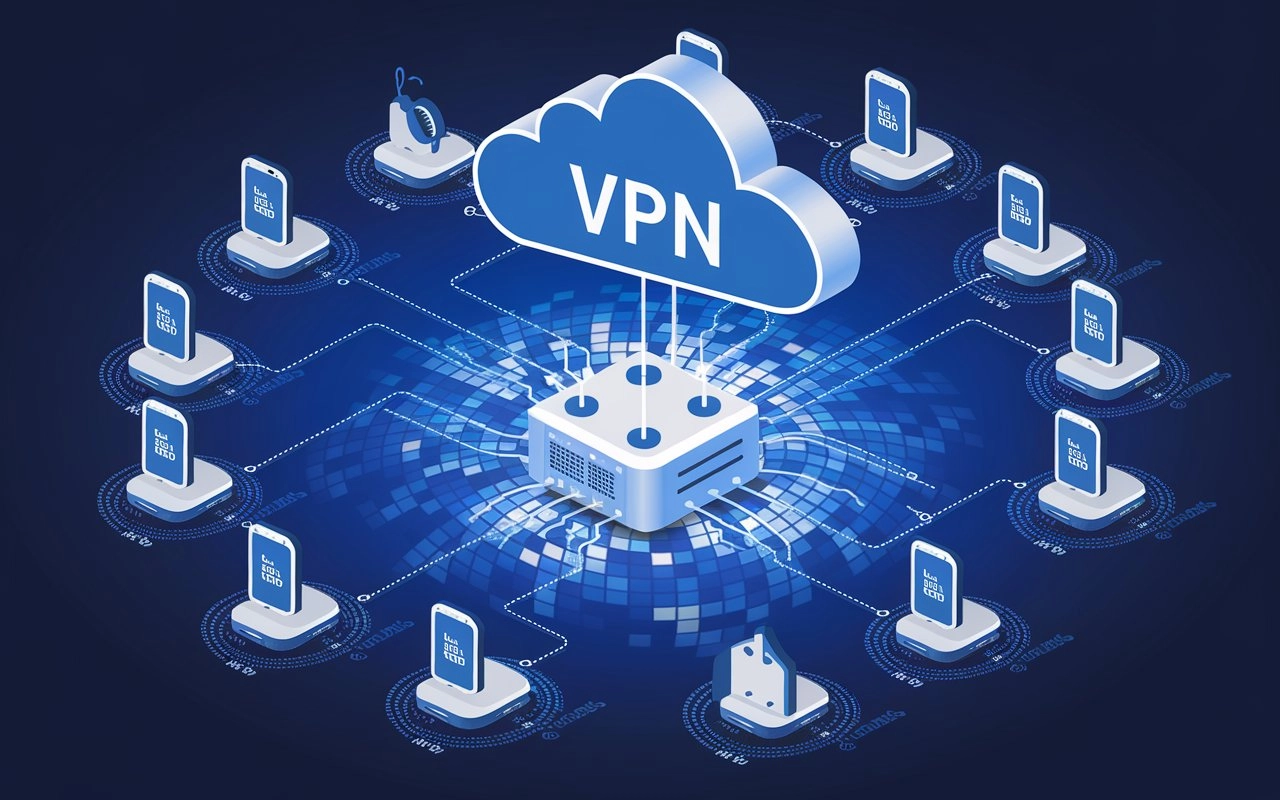Advantages and Features of Dynamic Multipoint VPN: What You Need to Know

In an era where data security and privacy protection are becoming increasingly important aspects of the digital space, VPN technologies play a key role. One of the modern and promising technologies is Dynamic Multipoint VPN (DMVPN). This innovation offers new opportunities for businesses and private users, providing an efficient and secure connection between multiple network nodes. This article discusses the main features of DMVPN technology, its advantages and use cases, as well as ways to show how it helps to cope with the challenges of modern networks.
Understanding the Features of DMVPN Technology
Dynamic Multipoint VPN (DMVPN) is an extension of the traditional VPN concept, designed to create secure virtual networks between multiple points. Unlike standard VPN connections, where each node must directly communicate with the central server, DMVPN allows nodes to directly communicate with each other. This is achieved through the use of dynamic IP addresses and automatic creation of tunnels between nodes. This approach reduces the load on the central node and increases network efficiency.
Using DMVPN has a number of significant advantages:
- Simplification of the network architecture. In traditional VPNs, each connection requires setting up a separate tunnel, which increases the complexity of network management. DMVPN, on the other hand, automates the process of creating tunnels between nodes, which simplifies network configuration and management.
- Reduced load on the central node. In DMVPN, nodes can communicate with each other directly, bypassing the central node. This not only reduces the load on the server, but also reduces latency, improving network performance.
- Scalability. DMVPN easily adapts to changes in the network. Adding new nodes does not require significant changes in the settings, which makes this technology ideal for large organizations with distributed offices.
- Cost savings. By allowing direct connectivity between nodes and reducing hardware requirements, DMVPN can reduce network infrastructure and maintenance costs.
Several key technologies and protocols are used to make DMVPN work effectively:
- Multipoint GRE (mGRE). This is a tunneling technology that allows a single tunnel to support multiple connection points. mGRE plays a key role in enabling dynamic tunnel creation between nodes.
- Next Hop Resolution Protocol (NHRP). NHRP is responsible for determining the optimal route for data transmission between nodes. It allows nodes to request and receive information about other network nodes, which makes dynamic tunnel creation possible.
- IPsec. To ensure data security, DMVPN uses the IPsec protocol, which encrypts data and ensures its integrity. IPsec helps prevent unauthorized access and protect data from interception.
Despite its many benefits, DMVPN does have its limitations:
- Complexity of setup. Although DMVPN simplifies network management, initial setup can be complex and require a certain level of knowledge and experience.
- Compatibility. Not all network devices and software support DMVPN, which may limit its use in certain environments.
- Performance. In some cases, using DMVPN may result in decreased network performance due to additional overhead for encryption and tunnel management.
DMVPN Applications: Effective in Various Areas
DMVPN has already found wide application in various areas, the list of which will only expand in the near future:
- Corporate networks. Large companies with distributed offices use DMVPN to create a secure and reliable network that connects all their offices. This ensures the security of corporate data and allows employees to exchange information without hindrance.
- Remote Offices and Branches. For organizations with multiple remote offices DMVPN is an ideal solution because it allows you to quickly and easily connect new branches to the main network.
- Mobile Users. In today's on-the-go and remote work environment, DMVPN allows mobile users to securely connect to the corporate network, regardless of their location.
Dynamic Multipoint VPN is a powerful and flexible solution for creating secure networks that connect multiple sites. With automatic tunnel creation and dynamic routing, DMVPN simplifies network management, reduces the load on central sites, and improves overall performance. However, setting up and managing this technology requires some knowledge and experience, which may be a limitation for some users.
Private VPN Server and DMVPN: Common Features
Although DMVPN is mainly used to create corporate networks, the principles underlying it are also used in private VPN servers. Both solutions provide data protection and privacy, but DMVPN is more designed to connect multiple nodes within a single organization, while a private VPN server is used by individual users to protect their Internet traffic.
A private VPN server can be purchased on favorable terms at Private VPN server. The site presents an offer, as well as detailed information about rental options, payment methods, geographic location of servers and other aspects of using the service.